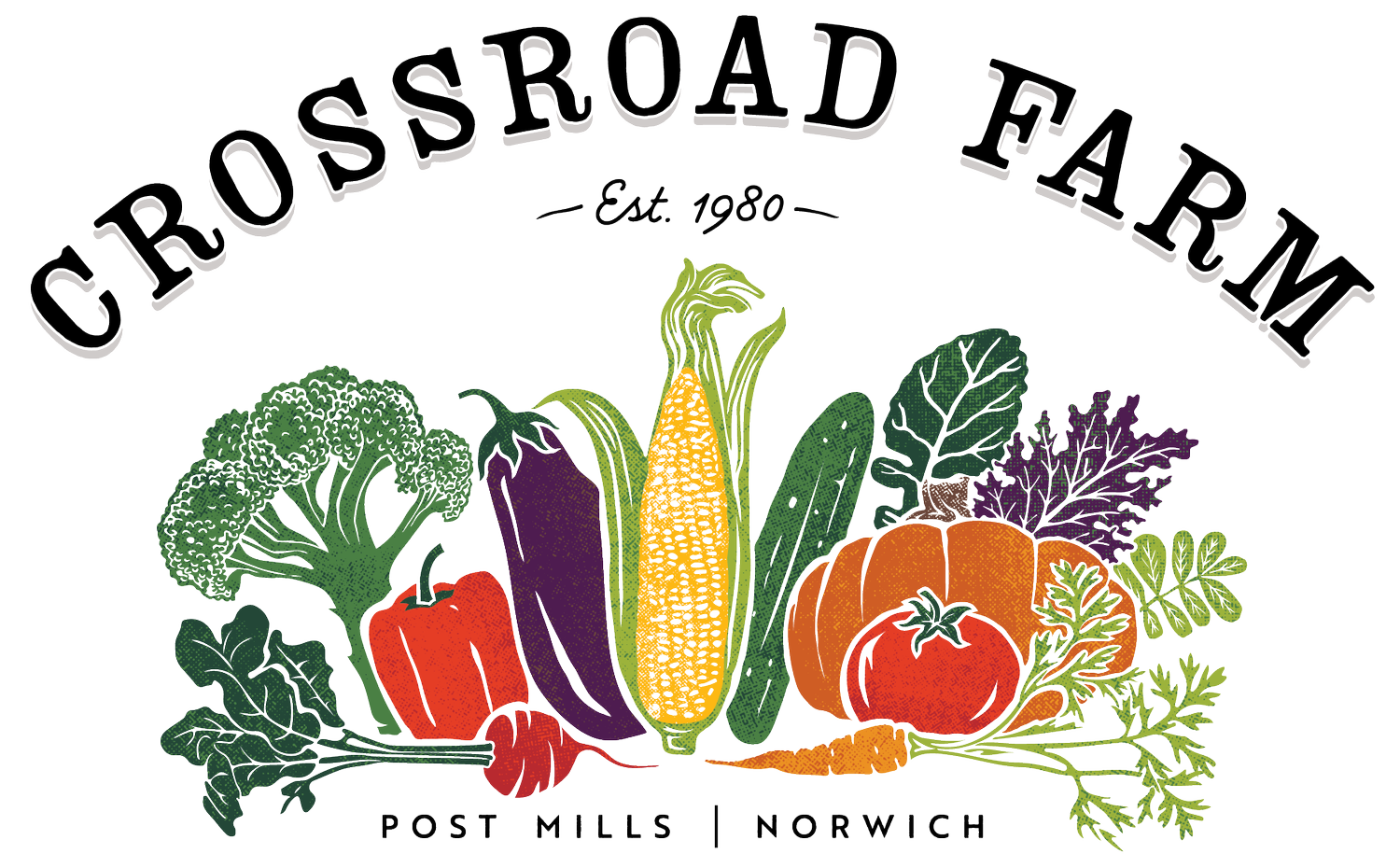
PHILOSOPHY & PRACTICES
Since our founding in 1980, Crossroad Farm has prioritized growing practices that emphasize the long-term health of the soil, our employees and our customers. We pride ourselves on growing delicious and affordable produce.
Our use of preventative methods reduces the need for pesticides, fungicides and herbicides and most of our crops are grown without any sprays at all. If we have to use pesticides, we choose those that are the least persistent with minimal days to harvest, meaning that the chemical is active for a short period of time prior to harvesting. We’re confident that we spray less than the average organic farm and we never use GMO seed.
We recognize that just because a substance utilized in farming is labeled as “organic,” doesn’t necessarily mean it’s safer or healthier for the consumer, the farmer, or the ecology of the farm. For example, biodegradable mulch films are not allowed in US organic agriculture despite being approved for production in Europe since 2012. The alternative, embossed-plastic, never breaks down and would inevitably end up in our landfills and dispersed in our soil. Another example: Copper Sulfate, a certified organic pesticide, is highly toxic to not only humans but also to beneficial soil organisms, such as earthworms and bees. On the other hand, a synthetic alternative is almost completely non-toxic in all of these respects; however, because it isn’t naturally-occurring, it isn’t certifiable as organic. For us, it’s essential that we move beyond a label and pursue sustainability in the most holistic way possible. We do this by focusing on the specific practices outlined below.
Our wide variety of crops and crop rotation between fields enables us to disrupt disease and pest cycles without using chemicals. This approach also insulates us from the financial risk of any single crop failure. Using a detailed, long-term plan for rotating our crops is just one important method for preventing disease and insect damage. Below you'll find descriptions of other preventative methods we use instead of pesticides, herbicides and fungicides.
Cover Crops & Green Manures
We use cover crops, grown between cash crop cycles to reduce soil erosion and water runoff. These crops also help maintain nutrients in the soil. Green manures are crops grown to add nutrients, particularly nitrogen and organic matter, to the soil, thus feeding future crops.
Integrated Pest Management (IPM)
We use pest and environmental information to design and implement pest control methods that are economically, environmentally and socially sound. IPM may not completely eliminate the use of all pesticides, but it’s designed to minimize their use while boosting crop return through the use of multiple, complementary growing practices.
Scouting
The process of carefully inspecting a crop for insects and diseases, both destructive and beneficial, allows us to fully understand the condition of our crops and address any pest control concerns early, lower-impact mitigation.
Thresholds
We use pesticides if and when pest population densities reach a level that will compromise the viability of a given crop. We make a conscious effort to choose pest control materials that are relatively non-toxic to people with few environmental side-effects, many of which are approved for use in certified organic production.
Cultural Controls
These include changes in our routines and production systems. We’re able to optimize crop and soil health by rotating crops, altering planting times, managing irrigation, and reintegrating crop reside to the soil immediately after harvesting is finished.
Management of Beneficial Organisms
This is a method of biological control through the use of naturally-occurring or introduced beneficial organisms to regulate or suppress pest populations. Natural systems create equilibrium in the environment. Some insects that are harmless to our crops will organically control pests, if we are mindful of maintaining this equilibrium. Our philosophy is that natural enemies of pests should be preserved and encouraged whenever possible.
Row Covers
Row covers provide a barrier against insect damage as well as an insulating layer, which helps regulate moisture and temperature for excellent, early yields. We use row covers extensively since they can be reused many times and have no real downside.

